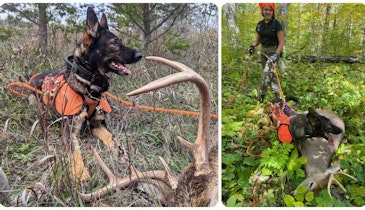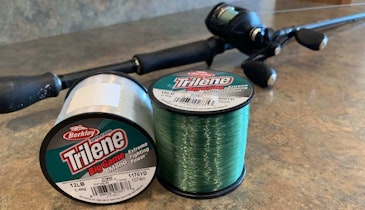The story has died down (sorry-not-sorry for that pun) but a few weeks after a pride of lions enjoyed Poacher au Gratin, I still simply laugh and wish it happened more frequently.
Poachers and what they do suck. Honest, legitimate hunters can't stand poachers. I don't know of any solid, upstanding hunter who knows of a poacher and says something along the lines of, "Aw, he's a good ol' boy but now and then he just gets a little sideways."
Poaching goes against the basic tenents of fair chase hunting, which is to pursue game legally, ethically and with the best means to make an effective, lethal shot for a clean kill. We could debate endlessly about poaching and what it is. Some would try to split hairs with a, "Yeah, but..." or "Whatabout ..." argument but nah, that's not cool. Poaching sucks, period.
So when the story hit in early July about lions chowing down on rhino poachers in South Africa, I was captivated. Here's the first part:
CAPE TOWN — In the cold hours before dawn this week on a South African game reserve, a dog began barking. It was a special breed of Belgian sheepdog, and its job was to listen for poachers.
The dog’s handler, trained to guard rhinoceroses, could hear a pride of lions in the distance. He decided it was a false alarm. But that Monday evening, rangers came across the remains of men suspected of being poachers.
“One of our guys found what he thought was a soccer ball,” Nick Fox, the owner of the private game reserve in Eastern Cape Province, said on Friday. “It turned out to be a skull.”
The next morning, rangers and police officers said that as many as three men suspected of being rhino poachers had been killed by lions in an area densely packed with thorn bushes.
Egads.
Within the last 18 months or so I've finished reading Hemingway's "The Green Hills of Africa" and Capstick's "Death in the Tall Grass." I love both of them for the insight, the distinctive writing styles, the ability to make me imagine waiting on a riverbank crossing for a shot or tracking in thick brush. I've never been to Africa, and probably never will go, but my imagination runs wild.
Poaching isn't taken lightly in Africa. Owners or managers of game reserves, which often encompass hundreds of thousands of acres, protect their area with dogs (such as the ones described above) and patrols. Still, whether for food or to sell parts of animals to illegal buyers, poaching continues. Here's an example of why, from the story:
Rhino horn is worth about $9,000 per pound in Asia, driving a lucrative and illicit trade. It is a prized ingredient in Chinese traditional medicine and is considered a status symbol.
South Africa is home to about 20,000 wild rhinos, more than 80 percent of the world’s population. About one-third of the animals are owned by private breeders. Since 2008, more than 7,000 rhinos have been hunted illegally, with 1,028 killed in 2017, according to the South African Department of Environmental Affairs.
Things certainly are different in Africa. The sale of one rhino horn probably would be enough for a family to survive on for a long time, perhaps a year or more. But these aren't single guys braving the dark of night and whatever awaits, killing a rhino to saw off a horn and then scampering home.
These poaching gangs simply are trying to make money similar to drug runners or those driving the sex trade.
And when lions eat those folks and knock around their skull like a soccer ball, I only can laugh. Good riddance.






